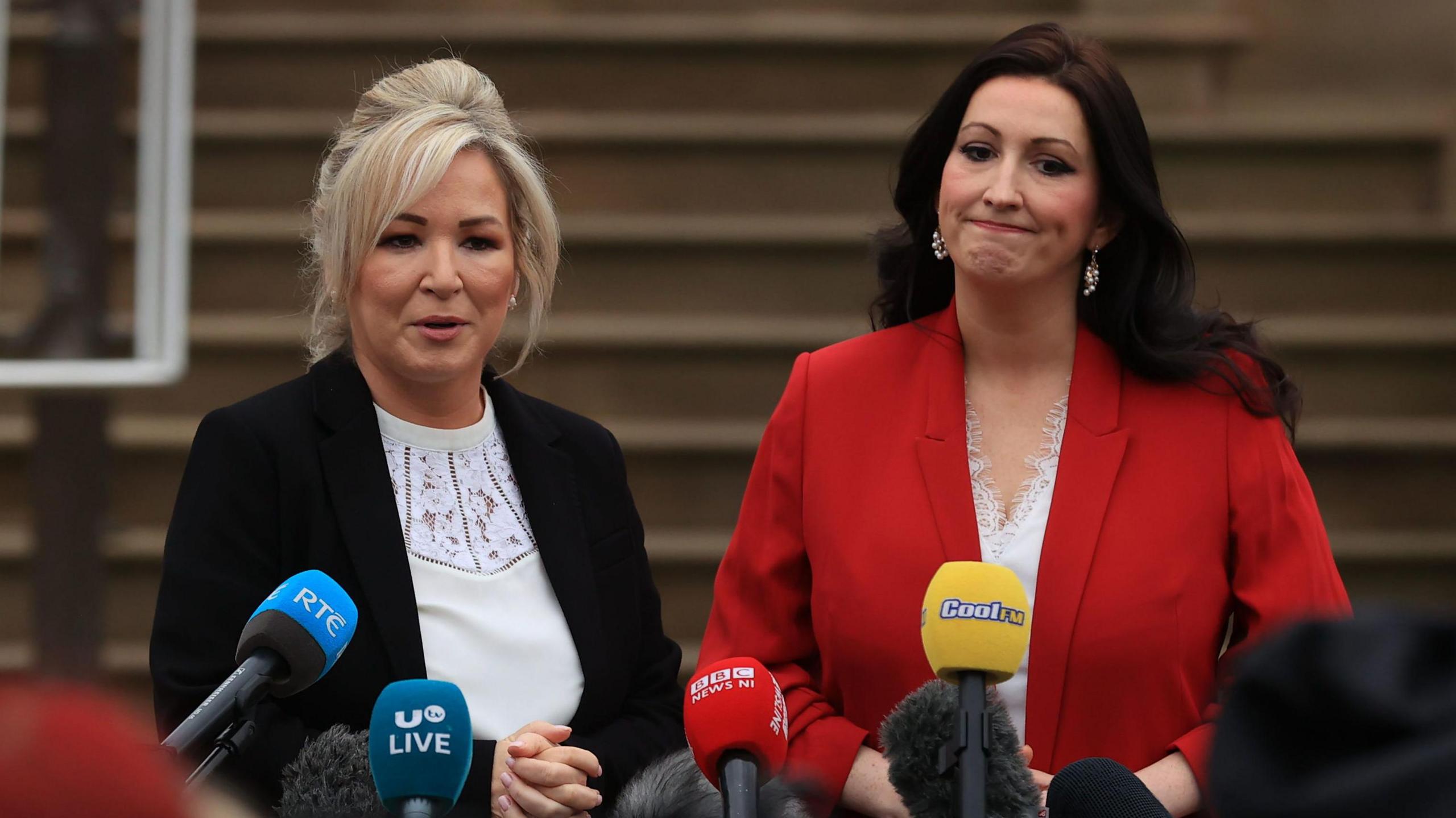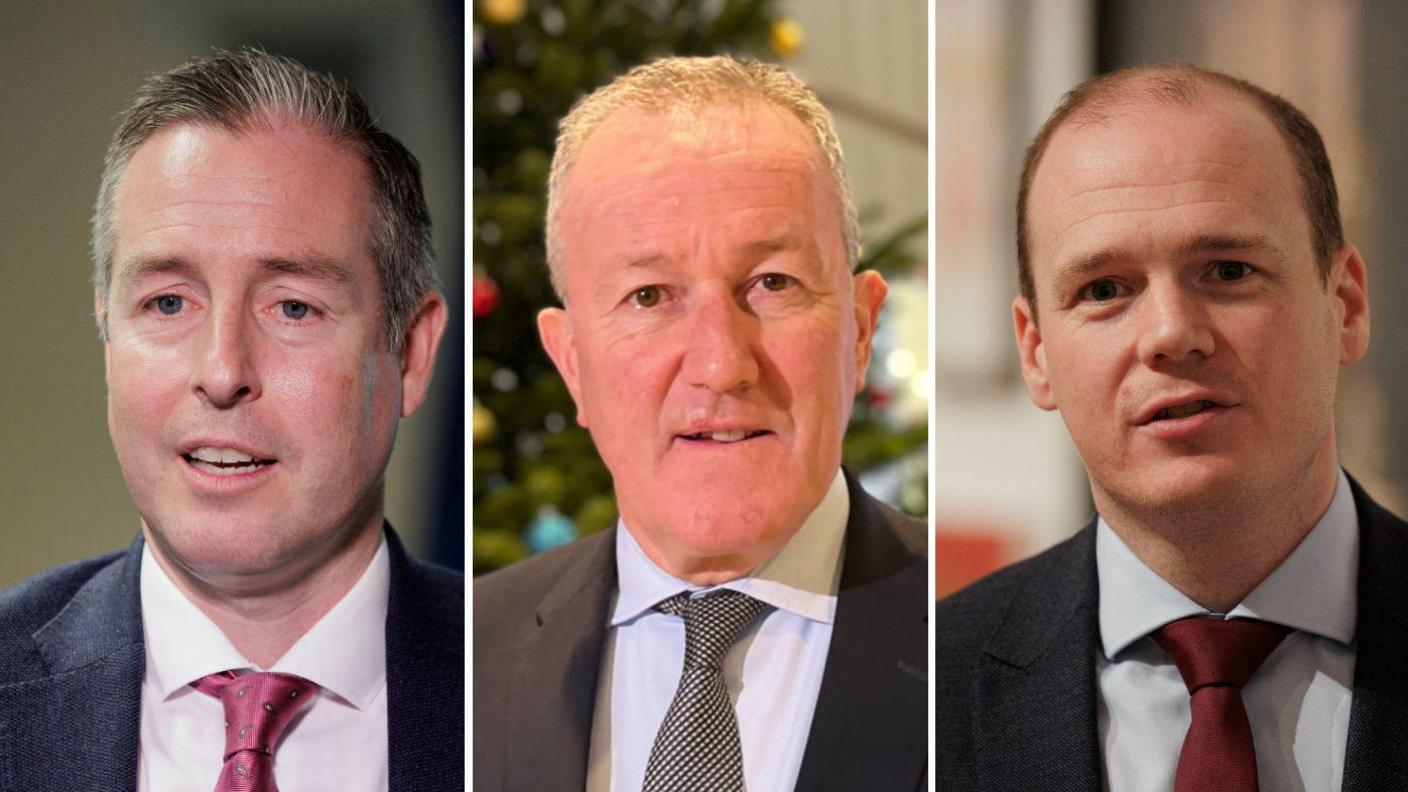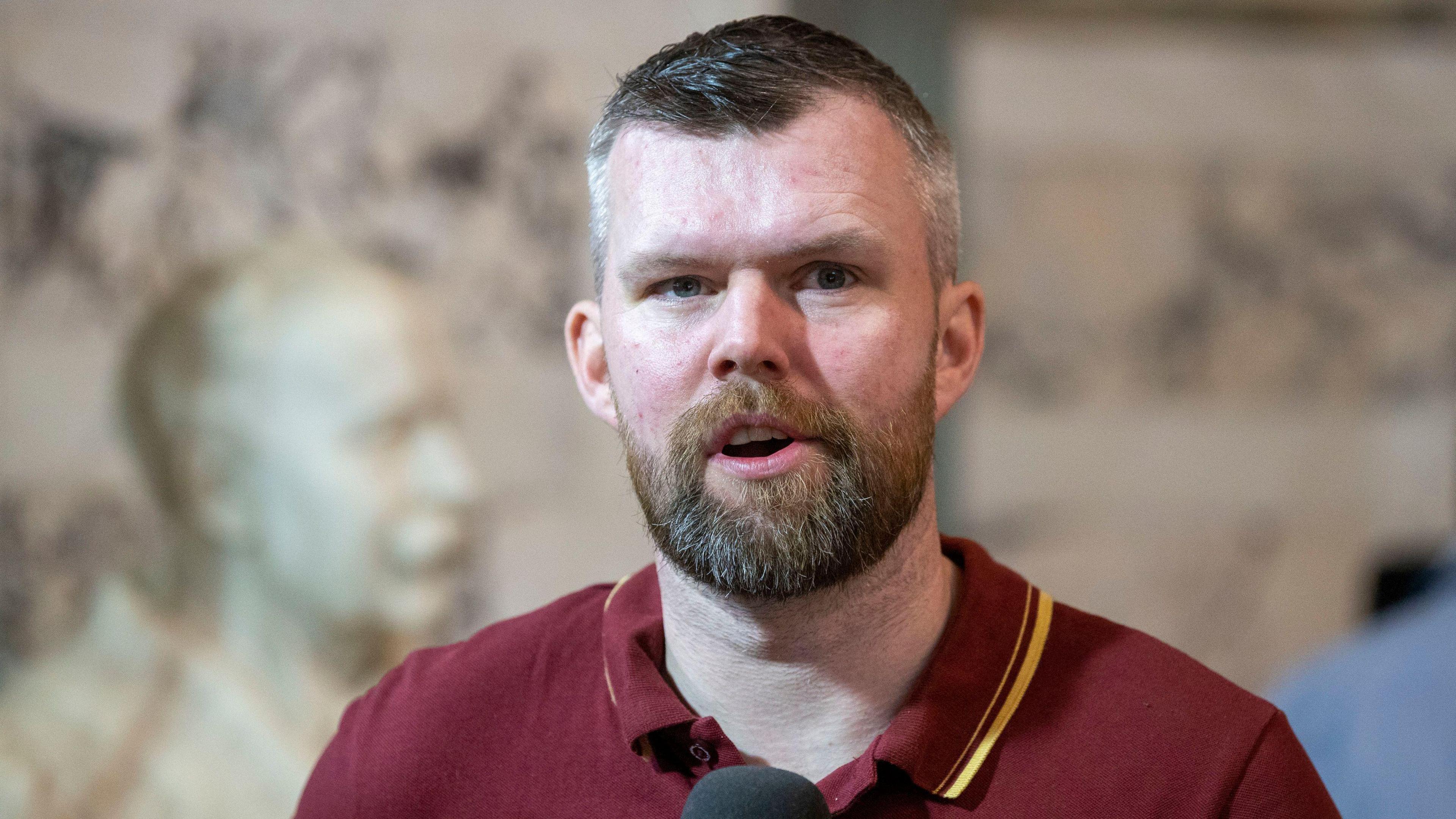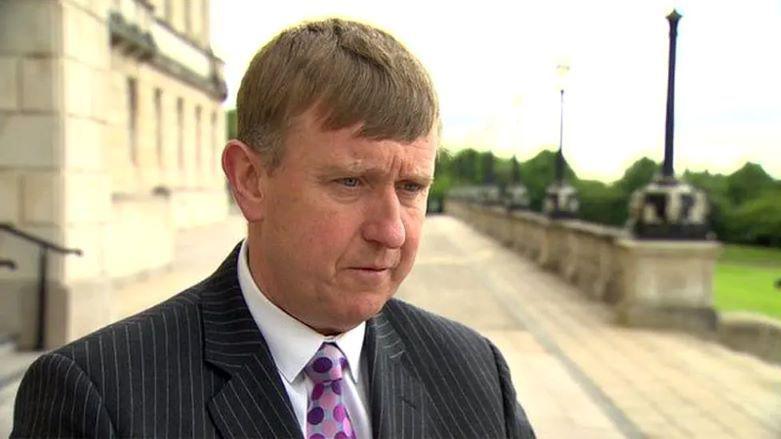Stormont spend on business-class flights 'out of touch'

First Minister Michelle O'Neill and Deputy First Minister Emma Little-Pengelly
- Published
Stormont ministers have spent almost £35,000 on business-class flights since Northern Ireland's devolved government was restored in February.
The figure was more than double the amount spent on economy air travel.
One assembly member described the spending as "completely out of touch".
Stormont officials said flying business-class helps ministers prepare for engagements, and bookings are made in accordance with travel policies.
More than £48,000 was spent on 94 flights for ministers, according to responses to BBC News NI, under the Freedom of Information Act.
This included 39 business-class flights costing more than £34,600.
More than £12,100 was spent on 54 economy-class trips and £1,871 on a premium economy flight.
The Stormont department with the highest spend was the Executive Office, which is headed by First Minister Michelle O'Neill and Deputy First Minister Emma Little-Pengelly.
It spent £19,872 on 38 flights for the first and deputy first ministers.
Most of the expenditure was on business-class flights, with 21 booked at a cost of almost £16,200.
They included business-class flights between Dublin and Washington DC in March ahead of St Patrick's Day celebrations.
The head of the civil service Jayne Brady made the trip to the US in economy.
'Shocked and surprised'
In August, O'Neill returned from a holiday in Portugal when the Stormont assembly was recalled in response to street disorder in Belfast.
Two economy flights for the Sinn Féin deputy leader between Belfast and Faro were paid for by the Executive Office, according to the figures.
The communities minister had five business-class flights costing £6,609. They included travel to London, Washington and Toronto.
Gordon Lyons in November said he was "shocked and surprised" when he learned of the overall cost of his trip to the US and Canada.
The Irish News reported more than £40,000 was spent on the nine-day visit involving five of his officials.
Lyons, a Democratic Unionist Party (DUP) assembly member, told the BBC's Nolan Show procurement practices should be examined to ensure "value for money".
'Ministers ought to be flying economy'

Stormont ministers Paul Givan, Conor Murphy and Gordon Lyons
Economy Minister Conor Murphy had seven business-class flights at a cost of almost £6,500, with destinations including Chicago and Singapore.
There were also 17 economy flights costing £3,490 including trips to New York, London and Berlin.
Education Minister Paul Givan travelled business class on all six of his flights over the period, costing more than £5,300.
People Before Profit assembly member Gerry Carroll described the Stormont executive's spending on business-class flights as "completely out of touch with ordinary people".
He said spending on O'Neill's flights between Belfast and Faro was "inappropriate" and that questions remained over Lyons's trip to the US and Canada.
"Ministers ought to be flying economy, just like the vast majority of the constituents they represent," he added.
"They should also be reflecting on the wider purpose of their overseas visits, and whether environmentally destructive air travel is really necessary in the first place."
The four Northern Ireland Executive departments whose ministers travelled business class were approached for comment.

Gerry Carroll, pictured in 2023, believes economy flights would be more appropriate
The Department for the Economy said the ministerial role "involves representing our trade, investment and business interests in many different parts of the world".
A spokesman said the majority of the minister's flights were economy class.
"On occasion, the minister has flown business class in order to be prepared for a busy spell of engagements, which often get underway immediately upon arrival, or to prepare for departmental/assembly business upon his return," he added.
A Department of Education spokesperson said: "All departments must book all business travel, including accommodation and flights, using departmental travel desks.
"All travel requests are made and approved in accordance with the NICS (Northern Ireland Civil Service) Travel Policy and booked through the travel management company."
The Executive Office and the Department for Communities were also approached for comment.
- Published15 December 2024

- Published13 December 2024
